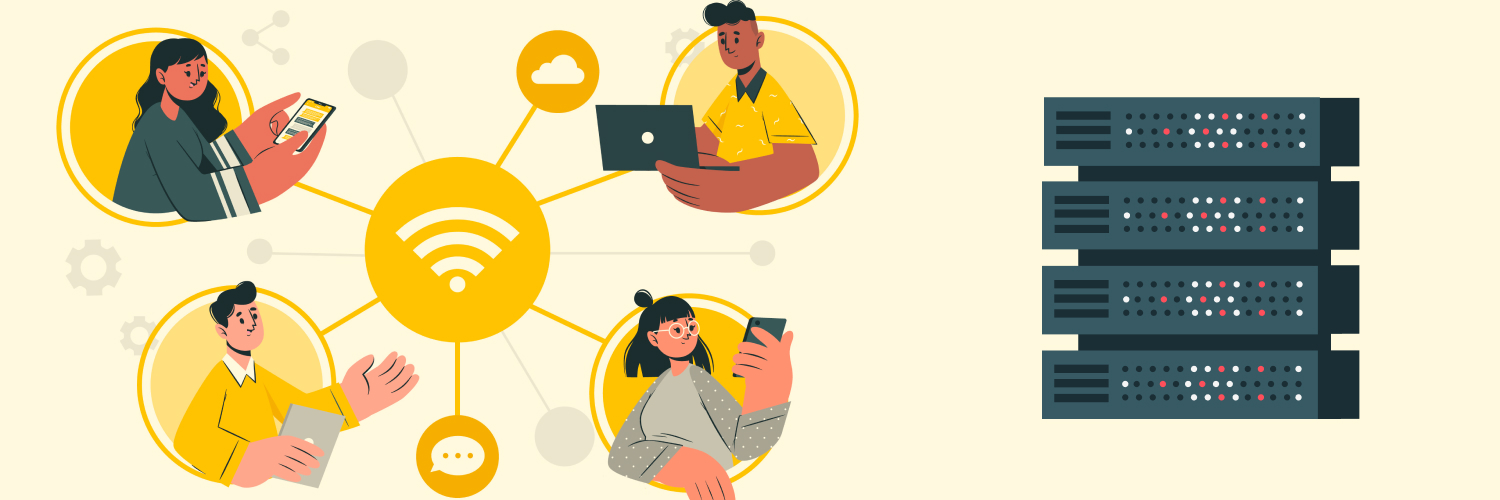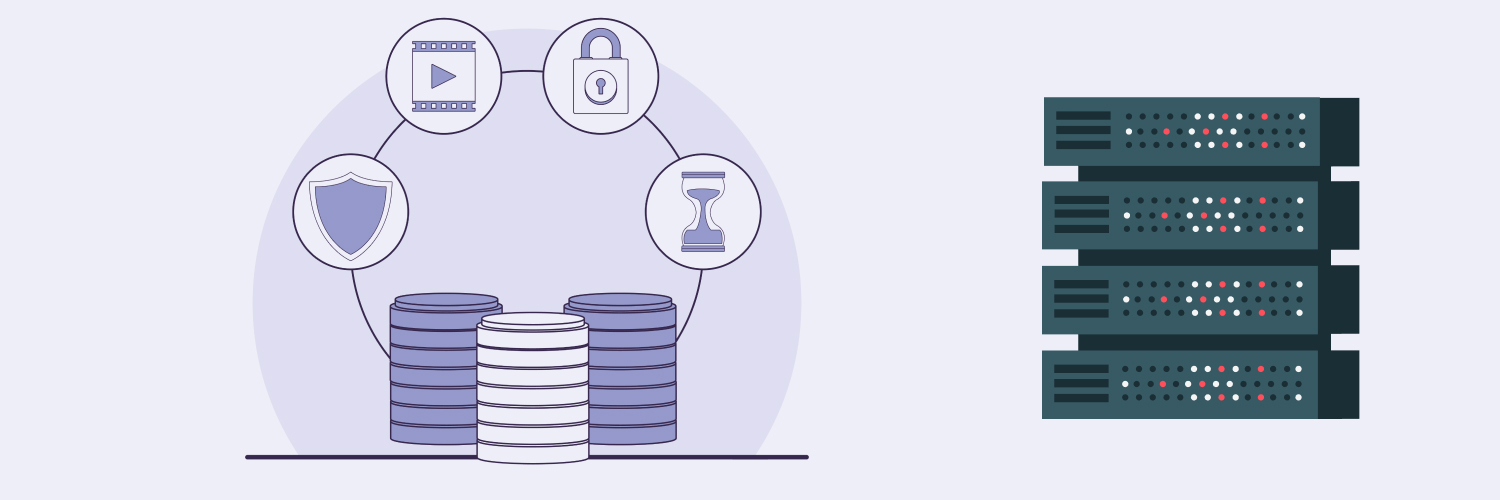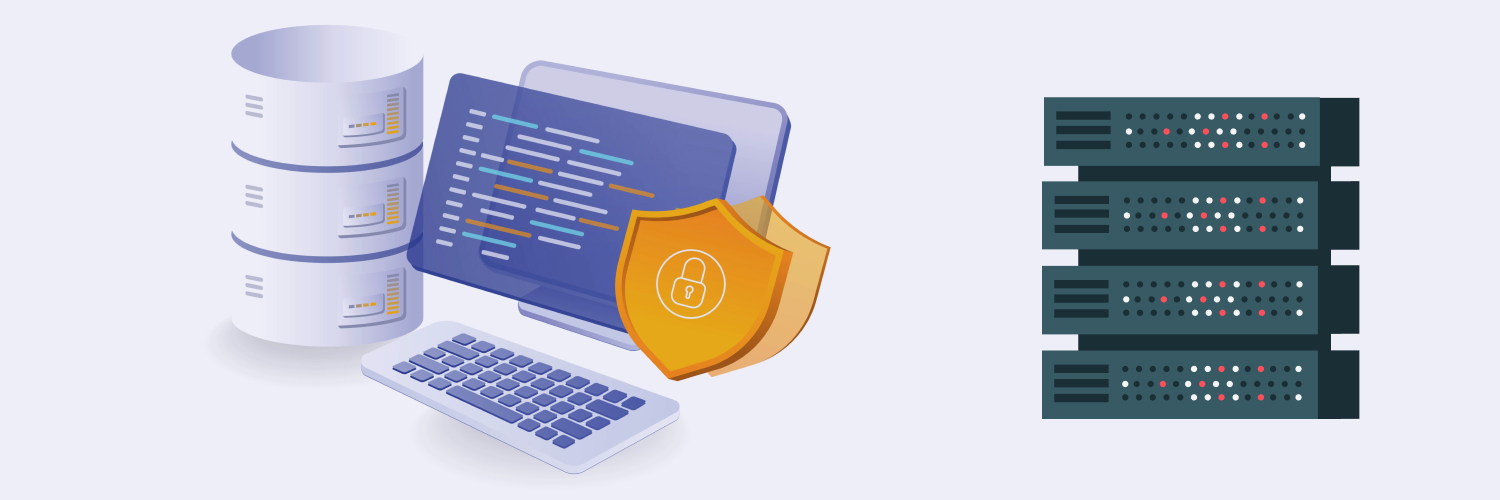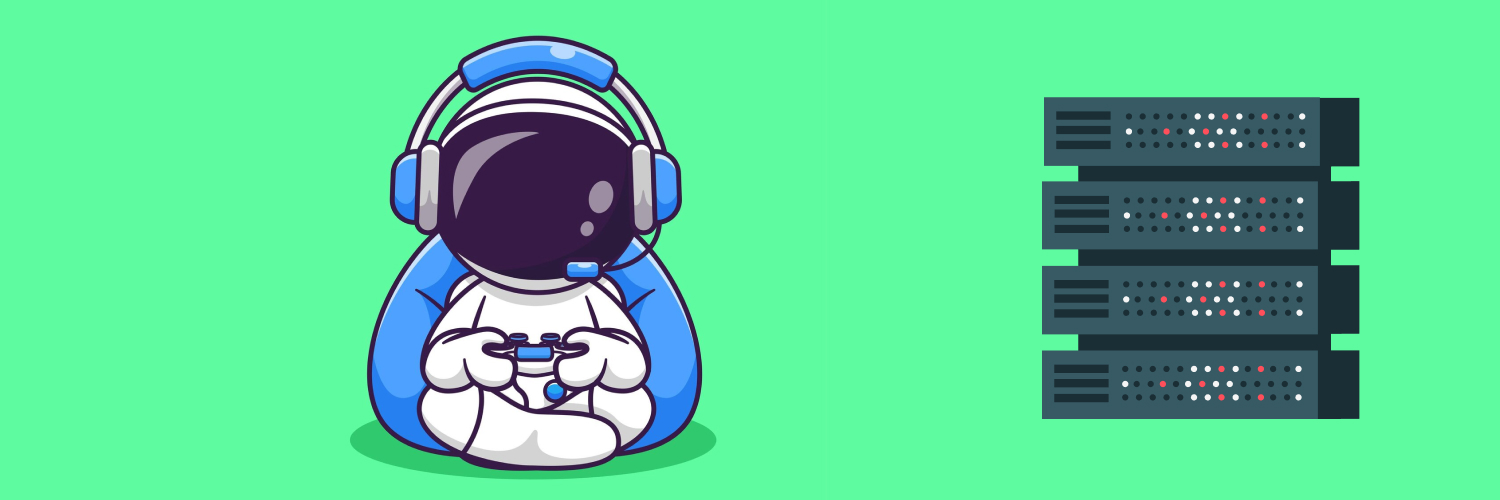What Is An HTTP Cookie And How Does It Work?
Every website you go to and every Bing or Google search you undertake leaves a trail of digital crumbs across the web. Communication goes both ways on the web. You’re not just consuming news or shopping. You’re also giving your information to the site you’re visiting. Read more about HTTP cookie.
These crumbs of info provide the site with your IP address, which gives a rough approximation of your geographic location and other data:
- How long you stayed on the site
- The articles you read and how far you get into them
- The videos you watch and for how long
- The sites you have visited before and after
- Whether you put items in your cart but didn’t purchase
Sites track their visitors’ progress, likes, dislikes, and purchases via pieces of data called cookies. They are somewhat controversial, and Congress has made efforts to limit third-party cookies. If you’re curious about what an HTTP cookie is, exactly how it works, and how you can keep cookies from invading your privacy, this is the guide you need.
What Is HTTP?

HTTP (Hypertext Transfer Protocol) is the application protocol that enables communication between web users and allows for the cataloging of information to make the web searchable. In tech terms, it is a protocol for retrieving HTML documents and other resources and forms the foundation of all data exchange via the internet. As a client-server protocol, HTTP allows requests to be initiated by the recipient, usually a Web browser, to a server that stores the information you wish to access.
What Are HTTP Cookies?
An HTTP cookie is a small block of data a server places on your web browser when you visit its site. Every time you go back to visit that site (and its server), it can log your visit, the precise content you click on, and the length of time you spend reading it. Some more privacy-aware browsers, such as Firefox, limit the cookies a site can place on your browser.
There isn’t total agreement on how cookies got their name, but most sources say it’s short for “magic cookie,” a packet of data whose contents are known only to the user. The term magic cookie itself comes from the idea of a fortune cookie, and the image of a small sweet snack that hides a piece of information and leaves a trail of crumbs is certainly accurate in its evocations.
The data the cookie provides is of use to the website itself, which can use that information to serve you future content it believes you will find appealing. Cookies are also useful to advertisers, who can profit from the information they provide about your online habits and interests. It’s this last function that makes cookies controversial.
Cookies and Privacy Concerns
Google announced in 2021 that it would cease employing third-party cookies on its popular browser, Chrome. Third-party cookies are placed on your browser by advertisers, who use them to monitor users’ online behavior and build a consumer profile, which is gold to marketing companies.
This has forced marketers to alter how they try and target users. Google still has ways of tracking users via their searches and selling their information to advertisers, but their intent in blocking third-party cookies is to limit the sheer number of advertisers who can track you. If you visit the world’s leading search and news sites, you could end up with thousands of third-party cookies on your device, leading to compromised security and your data theoretically being sold to who knows how many more advertisers and marketing companies.
What Is an HTTP Cookie Used For?

Cookies provide some essential functions to keep a site running smoothly.
State/session management
This refers to how websites remember the items you left in your cart. Session management can also help track prices like plane fares over time and keep you from needing to enter your password every time you visit a site you frequent.
This use of cookies allows your crossword puzzle to remain half-filled when you take a break and return or resume browsing suits a week later with your preferences and filters intact. A site will remember you across its various parts, which is essential to the internet as we know it.
Imagine how frustrating it would be to start from scratch every time from a shopper’s point of view. From a business standpoint, this allows you to track what’s selling and what consumers put in their cart before hesitating to pull the trigger.
Personalization
Personalization can range from trivial but enjoyable settings like color and site layout but can also improve site readability, such as language and font size settings. If you regularly visit overseas sites, cookies can help them remain translated into your native language.
Shopping sites use personalization to serve you products you might like, as well as special deals and individual calls to action, making online shopping feel more personal. Even little things like welcoming you back by name can make your shopping experience more enjoyable (and lucrative for the business).
User tracking
There are nonadvertising benefits to using cookies to track users, too. These include allowing Google to study which sites are most popular in different categories, thus painting an accurate picture of the World Wide Web and its uses (this is another incident of cookies harvesting big data, but a lot of the art of marketing now comes down taking advantage of trends when they pop up).
This kind of user tracking can allow sites to reach users better and help you learn what parts of your site appeal to readers and which do not. Cookies allow website operators to gain a truly accurate picture of their success or lack of it. They also help search engines track which pages satisfy users’ searches, gauging factors such as how long people spend on those pages or how often they are cited and cross-linked.
So, cookies are really quite essential to the web as you know it.
If you are curious about how many cookies are running on your browser at any time, it’s not that complicated to find out. You can actually see the cookies your browser is using. If you’re using Chrome, go to the Application tab, then select Cookies. You’ll see a list of first-party and third-party cookies (more on this difference below), along with other attributes of these cookies:
- Name
- Value (scope of the cookie’s mandate)
- Domain (the target server that can acquire the cookie)
- Expiration date (ranging from extremely limited to basically endless)
- Size, in bytes (usually pretty small)
How Are Cookies Passed in the HTTP Protocol?

According to Mozilla, after receiving an HTTP request, a server sends one or more set-cookie headers with its response. The cookie is then stored on your browser and is sent with the requests made to the same server. The cookie can be programmed with time limits and the circumstances under which it should be resent. Every time there’s a subsequent visit to the site (and a request to the server), all the previously-stored cookies are sent back to the server.
How are cookies sent in HTTP, then? Via headers, the very names of the pages whose links you click on and read. HTTP without cookies is “stateless.” That is, there’s no link between requests made on the same connection between the server and browser. The cookie in the HTTP header creates these links. When you enable HTTP cookies, you can create links and a kind of memory between your actions and the World Wide Web.
Varieties of Cookies
Cookies can be designed with different goals, meaning there are a few different types.
First-party cookies
First-party cookies are placed by the server of the site you’re visiting to ensure everything functions smoothly during your visit and that you’re remembered as a user every time you log in. First-party cookies are more or less endemic to the web. However, many sites avoid violating privacy laws by issuing disclaimers and asking how many cookies you accept before logging on.
While, in theory, these give you an array of choices, many web users cannot be bothered to go through their privacy options at great length and will click “Accept All” after barely skimming the privacy notification.
First-party cookies can be either session cookies or persistent (for more on these categories, see below).
Third-party cookies
Third-party cookies are placed by sites other than the one you are visiting. They may be placed by advertisers trying to keep tabs on you or social media sites that like to similarly snoop on their users’ activity to build a portrait of you as a potential target.
Search engines and popular news sites are also rife with third-party cookies, and it doesn’t take much browsing to potentially end up with thousands of third-party cookies clogging up your browser.
Thankfully, third-party cookies are being phased out and banned in most countries, as they are considered an invasion of privacy. Advertisers who once relied on them are switching to other methods of tracking you, though.
Session cookies vs. persistent cookies
Session cookies last just for the length of your visit to a specific site — e.g., from when you click on a shirt you’d like to buy to when you complete checkout.
Persistent cookies last between sessions (for indefinite amounts of time). These allow you to get back into your favorite news site or account without logging in each time. However, they can create security issues because you are permanently logged in to sites that include your sensitive information, making them easy targets for hackers. Persistent cookies are convenient, but many web users don’t stop to think about how much of their sensitive banking information is stored on their laptops and phones.
Zombie cookies
Zombie cookies are impossible to get rid of. They come back even when you delete them or close your browser because they are stored in a different region of your browser’s memory. These are illegal in states like California and have exposed those who used them to lawsuits, as they constitute an invasion of privacy.
While it may seem unlikely that you have any zombie cookies on your browser, you never know. You may be visiting sites based in countries with less restrictive laws (though the EU has been quite rigorous on questions of privacy lately).
Secure cookies
Secure cookies can use HTTPS secure attribution to exchange data and information. You’ll just need to set the cookies’ attribute to “True” when coding them. However, this is not a foolproof system, and hackers can still access your cookie data via forgeries, cookie harvesting, and end-system threats.
HTTP Cookie Properties

Like all things HTML, cookies can be programmed with specific properties. So they can cover the entirety of a web page or be attached to specific links or paths. A cookie’s scope can be as broad or limited as needed to track a user’s interaction with certain areas of your site.
How do you decode a cookie?
Just as you can code a cookie to be placed on users’ browsers, you can decode one, too. There are scripts you can find online to run automated cookie decoding, such as this one. The purpose of the HTTP cookie decoder is to find out what’s lurking inside the wrapping of the fortune cookie, as it were (e.g., its limits and scope). You can also run it to make sure the right (non-forged) cookie has been placed on your site and not one by a hacker.
Periodically deleting HTTP cookies
It’s easy and advisable to wipe cookies periodically from your browser. Usually, it just means going into “settings,” clearing your cache, and deleting your cookies. However, many people don’t do this because it means having to reenter a slew of passwords and credit card details, a convenience that seemingly outweighs any security risks. For someone running a website, this can also cause complications. Not knowing the nature of your user base can make it harder to get an accurate analysis.
Browsing in incognito mode is one way to block third-party cookies in Chrome, as cookies will be deleted as soon as you finish your session (users should note that incognito mode is far from truly private, and your IP address is still visible to the site and anyone running the network you’re logging in from).
HTTP Cookies and Data Scraping
Web scraping is the use of automated processes to scrape the internet for data insights that can propel your company’s growth. It’s a critical tool for both small and large enterprises to:
- Understand competitors’ prices and strategies.
- Gain a global, to-the-moment understanding of trends that may impact your bottom line, including data that can change second to second (weather forecasts).
- Scrape social media sites, allowing you to see what people say about you unprompted, which can be far more candid and valuable than surveys and structured data collection.
Web scraping relies on vast quantities of data because only sufficiently large data sets will give you the bird’s-eye view you need. While you could pursue this data collection manually, most web scraping is done automatically using bots.
Web Rayobyte’s Web Scraping APIs give you the quantities of data you need, but there are still a few issues to take care of. Websites usually have some security dedicated to stopping you from scraping them. One of the key ways they can detect repeated attempts to access their data from the same address is via cookies that note your IP address.
Successful web scraping technology will need to find ways to get around these scripts. Your bots will have to mimic human activity as much as possible and not appear to be making thousands of attack attempts from the same IP address, which would raise red flags.
Proxies, HTTP Cookies, and Web Scraping

The best partner for web scraping is Rayobyte because they have user-friendly technology that’s helpful in getting around cookies, including high-quality proxies.
Proxies are like middlemen between your requests and the servers you’re targeting. Using these proxies makes it impossible for the end server to place a cookie on your browser and recognize it (which would likely get you banned from scraping attempts).
Proxies come in several varieties, including residential and data center proxies. Residential proxies belong to domestic IP addresses, which Rayobyte sources ethically with clear upfront agreements and payment. Data center proxies belong to enormous computer farms, which provide you with the firepower you need to make a large volume of requests (but they may be more easily flagged than residential IP addresses).
The best solution for most businesses usually involves a combination of both. Using your own IP address for data scraping would be inadvisable, as cookies would quickly pinpoint exactly where all these requests for data were coming from. Likely, you would end up blocked.
But data scraping with proxies allows you to coordinate requests for data from all over the world, around the clock, in ways that don’t seem obvious to security scripts protecting websites. This can also allow you to avoid geoblocking, which could make your attempts at data gathering impossible if you were conducting them from only one territory.
Rayobyte offers services like Rayobyte’s Web Scraping API that do all the work for you, so you don’t have to overthink your data scraping strategy. It’s priced simply and features automated tools guaranteed to get you the data you need. If a request is rebuffed, Rayobyte’s Web Scraping API can quickly rotate it to another proxy while figuring out if the request is truly fatal (and a certain proxy has been blocked) or is just the result of a glitch.
HTTP Cookies and Proxies: Conclusions

What is an HTTP cookie, then? It’s a simple invention with profound implications. These packets of data foster communication between your browser and the server that contains the information you are accessing. They are essential to the functioning of the World Wide Web, as they create a kind of connective tissue between sites and functions that keep it running.
Without HTTP cookies, the web would be a lot more frustrating. You could put something in your shopping cart only for the site to forget it a moment later, for example. You would have to reenter your passwords constantly, and many users have difficulty keeping track of all the passwords they use for every site.
However, cookies also create security and privacy issues, making your information vulnerable to hackers. They can allow you to be tracked by potentially unscrupulous third parties and make it easy to pinpoint your location and identity. Some of these issues are so severe they require legislative solutions to curb cookie use.
Using rotating proxies like the high-quality, ethically-sourced ones offered by Rayobyte can allow you to sidestep many of the most frustrating issues with cookies. Proxies protect your privacy and ability to scrape data freely without being flagged by a web page’s security system.
So get in touch with Rayobyte today, and let them match you with automated tools that get you the data you need to grow your business without interruption.
The information contained within this article, including information posted by official staff, guest-submitted material, message board postings, or other third-party material is presented solely for the purposes of education and furtherance of the knowledge of the reader. All trademarks used in this publication are hereby acknowledged as the property of their respective owners.






